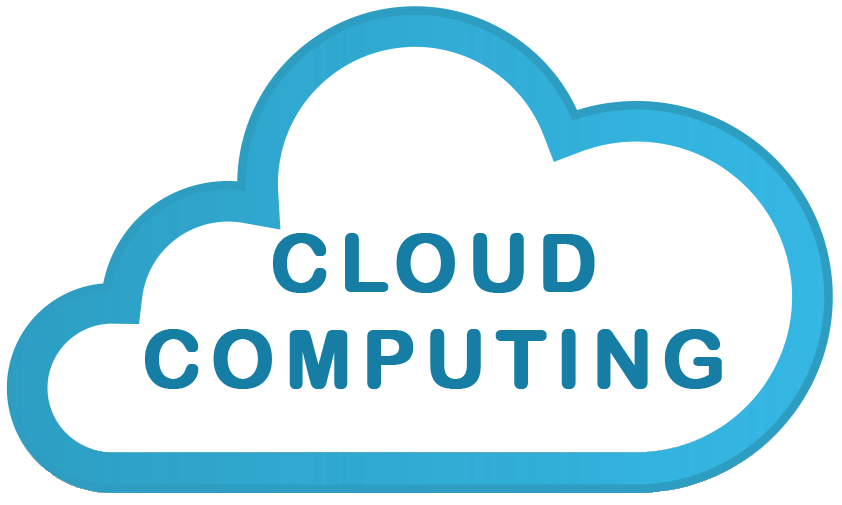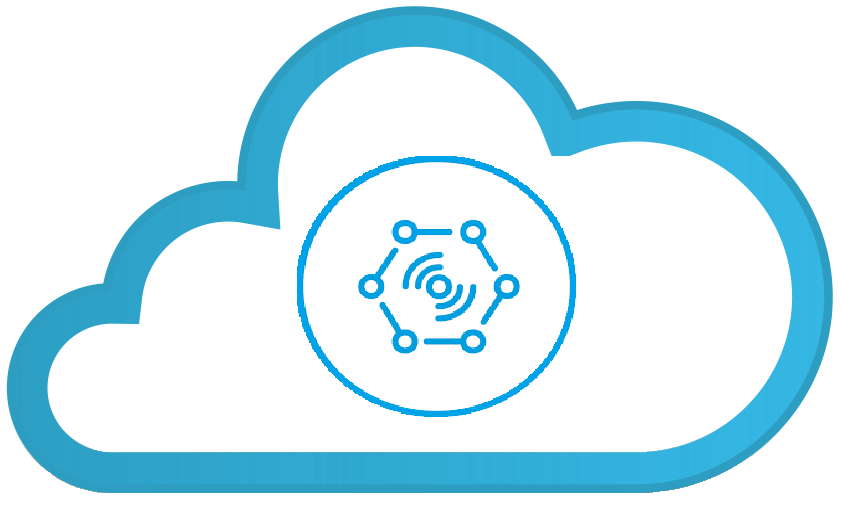
Call for Papers
The 5th International Conference on Cloud Computing and Artificial Intelligence: Technologies and Applications will be held from 24 to 26 November, 2020, in Marrakesh, Morocco.
CloudTech’20 will provide a high-level, international forum to present state-of-the-art research results, address new challenges, and discuss trends and opportunities related with all aspects and applications of Cloud Technology; Artificial Intelligence; Big data; High Performance Computing, Internet of Things.
The target public of CloudTech’20 includes all scientists, researchers, professionals, industry and government, particularly, researchers, policy-makers, engineers and students interested in all issues related to the topics above.
Next to the regular tracks we have some special sessions related to innovative applications with Artificial Intelligence, deep and machine learning, Blockchain and a demo-session for innovations achieved through prototyping and simulation.
We invite you to submit research papers related to following conference tracks:

Intercloud architecture models
Cloud services delivery models, campus integration and “last mile” issues
Networking technologies
Programming models & systems or tools
Cloud system design with FPGAs, GPUs or APUs
Scalability and performance
Resource provisioning, monitoring, management & maintenance
Operational, economic & business models
Green data centers
Computational resources, storage and network virtualization
Resource monitoring
Virtual desktops
Resilience, fault tolerance and disaster recovery
Modeling and performance evaluation
Energy efficiency
Cloud services models and frameworks
Cloud services reference models and standardization
Cloud-powered services design
Business processes, compliance and certification
Data management applications and services
Application workflows and scheduling
Application benchmarks and use cases
Fault-tolerance and availability of cloud services and applications
Energy-efficient data center and cloud technologies
Green computing models, simulations, designs, and paradigms
Application development and debugging tools
Business models and economics of cloud services
Distributed Cloud Infrastructure
Cloud federation and hybrid cloud infrastructure
Utility Computing (UC)
Cloud Brokering Problem
Edge Computing infrastructure
Cloudlets
Blockchain
Fog Computing Systems
Real Time Cloud
Cloud-centric Mobile security
Security for emerging cloud programming models
Cloud-delivered security services
Cryptographic protocols for cloud security
Cloud threat/attack/vulnerability models
Security, integrity and privacy for Cloud Computing
Reliability, Fault Tolerance, Quality-of-Service
Trust and policy management in the Cloud
Secure Identity Access Management
New standards, guidelines, best practices for security and privacy in the Cloud
Security risk models for cloud computing
Legal issues in the Cloud
Incident Response in the Cloud
Accountability and audit
Cloud integrity
Cryptography for and in the cloud
Hypervisor security
Identity management and security as a service
Prevention of data loss or leakage
Secure, interoperable identity management
Trust and credential management
Trusted computing
Usable security
Cloud security
Service Level Agreements and Performance Measurement
Energy-aware computing and communications
Energy-efficient networking and computing infrastructures
Energy-aware resource allocation and scheduling mechanisms
Green materials and devices designs
Usage of renewable energy for green ICT operation
Cross-layer optimization of green networking infrastructures
Life-cycle analysis of computing equipment
Energy harvesting, storage, and recycling
Climate and ecosystem monitoring

Computational and Artificial Intelligence
Agent-based systems
Ant colony optimization
Approximate reasoning
Artificial immune systems
Artificial Intelligence in modelling and simulation
Artificial Intelligence in scheduling and optimization
Artificial life
Bioinformatics and computational biology
Brain-machine interfaces
Cognitive systems and applications
Collective intelligence
Computer vision
Data mining
Data Management
Data Analytics
Differential Evolution
Evolutionary data mining
Evolutionary design
Evolutionary scheduling
Expert systems
Fuzzy Computing with Words
Fuzzy control and intelligent systems
Fuzzy decision making and decision support systems
Fuzzy logic and fuzzy set theory
Fuzzy optimization and design
Fuzzy pattern recognition
Fuzzy systems for robotics
Game theory
Hardware Implementations
Intelligent database systems
Knowledge engineering
Knowledge Management
Machine learning
Mining Data, Text, and the Web
Mobile Computing
Modeling and identification
Molecular and quantum computing
Multi-agent systems
Natural language processing
Neural Network Theory and Architectures
Particle swarm optimization
Robotics and related fields
Rough sets and rough data analysis
Speech understanding
Supervised and Unsupervised Learning
Type-2 fuzzy logic
Various Applications
Web intelligence
Human–computer interaction

Foundational Models for Big Data
Algorithms and Programming Techniques for Big Data Processing
Big Data Analytics and Metrics
Cloud Computing Techniques for Big Data
Big Data as a Service
Big Data Open Platforms
Big Data in Mobile and Pervasive Computing
Big Data Persistence and Preservation
Big data storage
Big Data Quality and Provenance Control
Big Data Storage and Retrieval
MapReduce for big data processing
Algorithms and Systems for Big Data Search
Distributed, and Peer-to-peer Search
Machine learning based on Big Data
Visualization Analytics for Big Data
Big Data for Improving Resilient Infrastructures
Big Data Applications such as Healthcare and Transportation
Big Data for Enterprise, Government, and Society
Big Data for Science and Engineering Research
Big Data System Security and Integrity
Big Data Information Security
Privacy Preserving Big Data Analytics
Usable Security and Privacy for Big Data

Modeling, Simulation and Evaluation Techniques of HPC Systems
Partitioning, Mapping and Scheduling algorithms
Network Flow and Congestion
Message Passing
Resource Allocation, Sharing and Management
Modeling and Simulation using HPC Systems
Load Balancing and Sharing for HPC
Mutual Exclusion, Deadlock Detection
Routing, Synchronization, Consistency
Reliable Parallel, and Distributed Algorithms
Network and Systems Protocols
HPC Security, Authentication, Access Control
Combinational Optimization Algorithms
Fault Tolerance and Resilience in HPC Systems
Cluster and Grid Computing
Fine-Grain Parallelism and Architectures
Distributed Shared Memory
Scalable Computing
Peer-to-Peer Architectures and Networks
High Performance Interconnection Networks
HPC Monitoring & Instrumentation
Architectures for High Performance
Ubiquitous & Pervasive Computing
Multi-Core Architectures and Support
Instruction-, Thread- and Memory-Level Parallelism
Network and Security Processors
Embedded and Application-Specific Architectures
Reconfigurable Computing & FPGA Based Architectures
Energy/Power Aware HPC Architectures and Green Computing
HPC Architectures for Mobility
Broadband and High Performance Networks
Sensors and High Performance Networks
Pervasive High Performance Computing
Transaction and Concurrency Control
Brokering Middleware
Web Ontologies and Semantics
Open CL Platforms and Developments
Operating Systems and Support
Virtualization and Virtual Machines
Programming Languages
Accelerators Programming
Libraries and Programming Environments
Distributed Objects and Remote Invocation
Object-Oriented Programming & Design
General-Purpose computation on Graphics Processing Units
High Performance Internet and Web Computing
Bioinformatics and Biocomputing
Robotics Systems
High Performance Knowledge Based Systems
Agent and Multi Agent Based Applications
Neural, Fuzzy, and Rough Sets in HPC
Large Scale Scientific Computing
Service Oriented Applications
Applied Modeling and Simulation using HPC
Large Scale Systems for Computational Sciences
Real-time and embedded P & D Applications
Industrial and Manufacturing Applications
Databases, Repositories and Their Applications
HPC and Education
Cooperative Information Systems and Applications
Computer Supported Decision Making using HPC
Granular Computing and its Applications
HPC in Digital Signal and Image Processing and Vision

IoT architectures and models
IoT Edge and Cloud Architectures
Web services and Web of Things
IoT Communication Technologies
Interacting with the IoT
Societal impact of the IoT
Energy Efficiency and Sustainability in the IoT
Sensing, Signal Processing, Actuation and Analytics
Security, Privacy and Trust in the IoT
Real-world Applications, Deployments and Testbeds
Social Adoption of IoT Systems
IOT Solution Reference Architectures and Instances
Next Generation Infrastructure for IOT
Open Platforms for IOT
IOT-based Smart City Solutions
IOT-based Smart Home
IOT-based Smart Education Systems
Security, Privacy, and Trust in IOT
IOT Standards and Application Scenarios
IOT-based Enterprise Management
IOT-based Business Process Management
IOT-based Robots
IOT-based Auto Driving
IOT-based Intelligent Manufacturing
Other IOT-based Vertical Industry Solutions
Mobile architectures and models
Green mobile computing
Resource management in mobile environments
Mobility-aware networking protocols
Multimedia applications in mobile environments
Mobile networks and applications
Papers Publication
All accepted and presented papers will be published in the conference proceedings and submitted for inclusion in IEEE Xplore Digital Library and will be indexing by Scopus.




Distinguished papers will be invited to submit a revised and extended version to some prestigious indexed International Journals as:

> Concurrency and Computation: Practice and Experience (CCPE)
Published by John Wiley & Sons Inc. and Indexed by: ACM Guide to Computing Literature (ACM), SCOPUS (Elsevier), Web of Science (Clarivate Analytics)n, BLP, ...
> International Journal of Cloud Computing (IJCC)
Published by Inder Science and Indexed by: Scopus (Elsevier), cnpLINKer (CNPIEC), DBLP, Google Scholar, ...
> International Journal of Autonomic Computing (IJAC)
Published by Inder Science and Indexed by: ACM Digital Library, cnpLINKer (CNPIEC), DBLP, Google Scholar, ...
A special issue will be published as a Lecture Notes in Networks and Systems (LNNS) Springer book (in pending)
> Lecture Notes in Networks and Systems (LNNS)
Indexing: The books of this series are submitted to ISI Proceedings, SCOPUS, Google Scholar and Springerlink
How to Submit?
Submitted manuscripts are limited to 8 pages and have to be formatted according to the IEEE Proceedings template. Please follow the IEEE Computer Society Press Proceedings Author Guidelines to prepare your papers. At least one author of each accepted paper is required present the paper and attend the conference.
Submissions should include paper title, abstract, names of authors, their affiliations, and emails addresses.
The papers should be submitted in PDF format to the CloudTech’20 easychair online submission website.